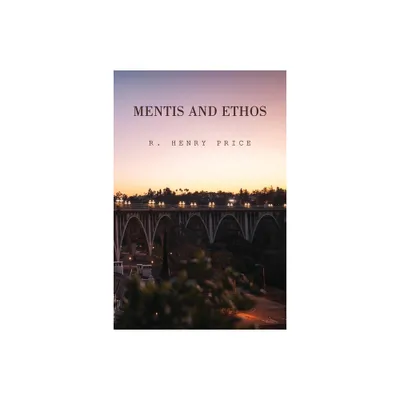Home
Ethos: A Critique of Eurocentric Modernity
Loading Inventory...
Barnes and Noble
Ethos: A Critique of Eurocentric Modernity
Current price: $115.00


Barnes and Noble
Ethos: A Critique of Eurocentric Modernity
Current price: $115.00
Loading Inventory...
Size: Hardcover
*Product Information may vary - to confirm product availability, pricing, and additional information please contact Barnes and Noble
Ethos
is a radical critique of Eurocentrism. In it, Ahmad Kasravi unleashes a scathing attack on Europe's self-perceived superiority as well as on Eastern promoters of the idea. Kasravi proceeds to outline the ills of post-Enlightenment European civilization: imperialism, colonialism, capitalism, Orientalism. Embedded in Europe's notions of “progress,” these phenomena have in reality brought about social Darwinism, racism, war-mongering, materialism, mindless consumerism, inequality and immorality in the world. Disputing the rationality or civility of these Western tokens, Kasravi warns Euro-enthusiasts in his country of the consequences of wholesale Westernization and instead advocates for a vernacular modernity premised on the noble virtues of Iranian culture and of rationalist Islam. In the process, Kasravi created the theoretical framework and the lexicon which many of his other works build upon, and which generations of other Iranian intellectuals of various persuasions would draw on. Placed in the context of similar polemical works from the global South,
Ethos's
import transcends the Iranian setting. It presents an embryonic articulation of post-colonial discourse which would, decades later, come to maturity and international recognition in the works of Edward Said and others.
is a radical critique of Eurocentrism. In it, Ahmad Kasravi unleashes a scathing attack on Europe's self-perceived superiority as well as on Eastern promoters of the idea. Kasravi proceeds to outline the ills of post-Enlightenment European civilization: imperialism, colonialism, capitalism, Orientalism. Embedded in Europe's notions of “progress,” these phenomena have in reality brought about social Darwinism, racism, war-mongering, materialism, mindless consumerism, inequality and immorality in the world. Disputing the rationality or civility of these Western tokens, Kasravi warns Euro-enthusiasts in his country of the consequences of wholesale Westernization and instead advocates for a vernacular modernity premised on the noble virtues of Iranian culture and of rationalist Islam. In the process, Kasravi created the theoretical framework and the lexicon which many of his other works build upon, and which generations of other Iranian intellectuals of various persuasions would draw on. Placed in the context of similar polemical works from the global South,
Ethos's
import transcends the Iranian setting. It presents an embryonic articulation of post-colonial discourse which would, decades later, come to maturity and international recognition in the works of Edward Said and others.


















